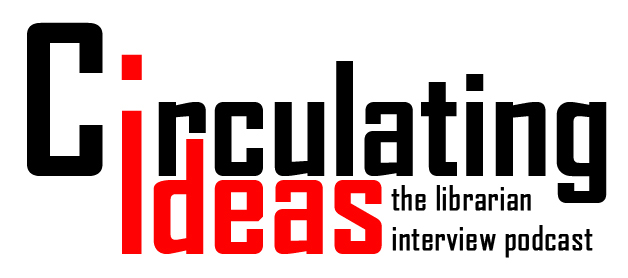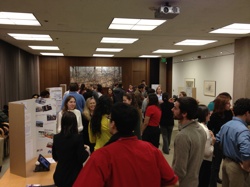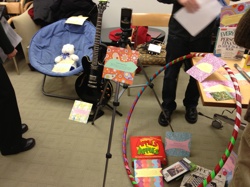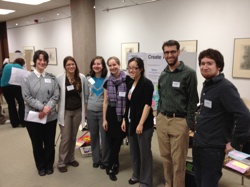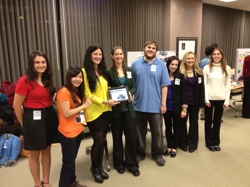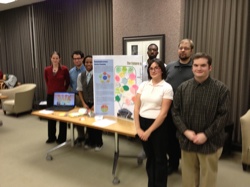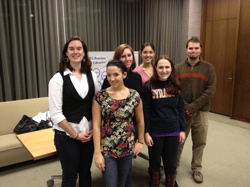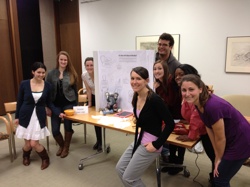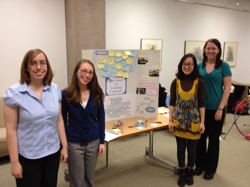Some folks have recently commented that in my presentations and writings I have a political agenda. They are right, but it is not what they think it is.
I believe that librarians must be political. That is they must be aware of politics, aid their members in political pursuits, and actively participate in the political process. Now directors of libraries will see this as nothing new, but I believe that all librarians must be politically savvy. Why? Well, let’s start with my definition of politics: politics is the process by which a community allocates power and resources.
Now the obvious link would be thinking about politics related directly to the library. That is funding, staffing, intellectual property, and the policies that shape how the library works. However, the political nature of librarians extends far beyond the library as an institution.
If you seek to empower people, you are talking about how power is distributed throughout a community (the “power” has to come from somewhere). Take reading as an example: why do libraries care about reading? Is it because it entertains and distracts community members from how the community makes decision (i.e., reading is for consumption), or is it to enable the reader to participate within the community (i.e., reading as empowerment)? If you buy into the concept that libraries are enmeshed into the larger concept of democracy, then we are preparing people for democratic participation. That is preparing people to join the conversation of how they are governed…that is political. The same could be said of academic libraries educating students (we are preparing students to be part of a market, but also part of a society). While special libraries tend to focus on helping members participate in markets (industry), they are also preparing the corporation, or non-profit, or government to participate in governance (from lobbying, to shaping regulation).
So libraries are political entities, and librarians are political creatures. This brings us to the real concern people raise about new librarianship -that I am somehow calling for librarians to pick sides. That is that I am either calling for librarians to rally against the tea party and begin a massive campaign of wealth redistribution. Or that I am calling for librarians to take over city hall and shape a community to our vision and definitions of good. The implication is that I am calling for librarian to declare themselves as democrats, or republicans – progressives or conservatives, etc. This leads to a very real concern that in doing so libraries and librarians would lose their status as honest brokers, and so lose their support by their communities. I actually agree.
However, when I call for librarians to be political, I am not calling for them to partisan, that is picking winners and losers. If there is one thing that librarians understand, it is that the world is much more complex than that.
Librarians see many sides of one issue. They may believe strongly in a given idea, but they are open to all ideas, and at least seek the merit in them (realizing they may find none). If librarians were to become partisan, they not only threaten their ability to serve and the communities trust, they would collapse ideas down to simple black and whites and not stay true to their professional ethos.
Librarians need to engage in politics not to reinforce the divisions of us versus them and not to perpetuate all or nothing win or lose ideals. They must become engaged in politics to ease these divisions. Just as librarians facilitate knowledge creation with the individual, they must also facilitate conversations and knowledge across political ideology (I never said that would be easy). Just as we are trusted agents in the land of reading and job searches, so too must we be trusted agents in the land of power and political debate. Think of the Library of Congress’ Congressional Research Service, State Law Libraries, and agency libraries.
Furthermore, rather than thinking of political involvement as some sort of debate at the national level, realize that political conversations occur at all levels of a community and society. From school boards, to governors, and from Wall Street to the kitchen table, librarians must bring their skills to democracy. Our job is not to win some partisan point, but to ensure the very conversation on how we govern ourselves (in the city, in the classroom, in the business) is fair, open, and informed. This conversation is the heart of democracy. Libraries need to be at the Occupy protests to ensure the power of the people, and the destruction of these libraries is either horrific ignorance, or the worst kind of cynical suppression.
I have heard a lot of talk about the “American Dream” recently. On the radio, on TV, and throughout the political discourse there are questions being raised about is the American Dream dead. Certainly this is in part a reaction to the economic times and a lack of economic mobility. It is definitely due in large part of gridlock in Washington, and an increased polarization of the political debate in the media. However, I have heard all too often that politicians are to blame – when they are there at our behest. Just as a library is product of people (community, librarians, staff), so too is our government. It is the role of librarians to first remind our communities that every citizen is responsible for the performance of our government and that the best elected government is one that is elected in the light of knowledge. This is the difference between citizen and consumer. A citizen is a participant who does not simply vote and forget.
The quest for dignity. the quest for prosperity, the quest for the American dream is neither kindled nor sustained in a mall. Freedom is not bought nor consumed. The quest for a better community and a better tomorrow requires the most fertile of grounds. Our dreams demand libraries and librarians. It is in the potent mix of ideas and reality – of the radical and the mundane – in the glow of both solitude and community – that we care take the dreams of a nation. Librarians are political because we all need to be political and join the debates of how power and resources are divided in this nation and indeed the world. Librarians, however, have a special responsibility to ensure that all participation is informed, nuanced, and ongoing.

